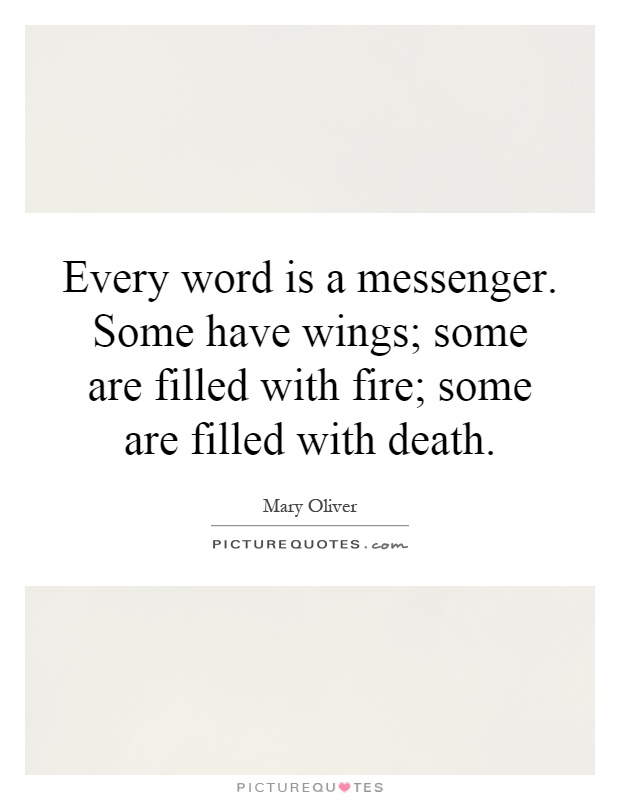Every word is a messenger. Some have wings; some are filled with fire; some are filled with death

Every word is a messenger. Some have wings; some are filled with fire; some are filled with death
Mary Oliver, the beloved poet and Pulitzer Prize winner, is known for her profound connection to nature and her ability to capture the beauty and wonder of the natural world in her poetry. In her work, every word is indeed a messenger, carrying with it a powerful message that resonates with readers on a deep and emotional level.Oliver's words are like messengers with wings, soaring through the pages of her poems and lifting the reader up to new heights of understanding and appreciation for the world around them. Her language is often lyrical and ethereal, filled with a sense of wonder and awe at the beauty of the natural world. In poems like "Wild Geese" and "The Summer Day," Oliver's words take flight, carrying the reader on a journey of self-discovery and connection to the world around them.
But not all of Oliver's words are gentle messengers with wings. Some are filled with fire, burning with a fierce passion and intensity that demands to be heard. In poems like "The Journey" and "The Fish," Oliver's words are powerful and unapologetic, challenging the reader to confront difficult truths and embrace the full range of human experience. These words are like flames, illuminating the darkness and guiding the reader towards a deeper understanding of themselves and the world.
And yet, some of Oliver's words are filled with death, reminding us of the impermanence and fragility of life. In poems like "When Death Comes" and "In Blackwater Woods," Oliver confronts the inevitability of death with a sense of acceptance and grace. These words are like a solemn reminder of our own mortality, urging us to live fully and embrace the beauty and wonder of the world while we can.












 Friendship Quotes
Friendship Quotes Love Quotes
Love Quotes Life Quotes
Life Quotes Funny Quotes
Funny Quotes Motivational Quotes
Motivational Quotes Inspirational Quotes
Inspirational Quotes